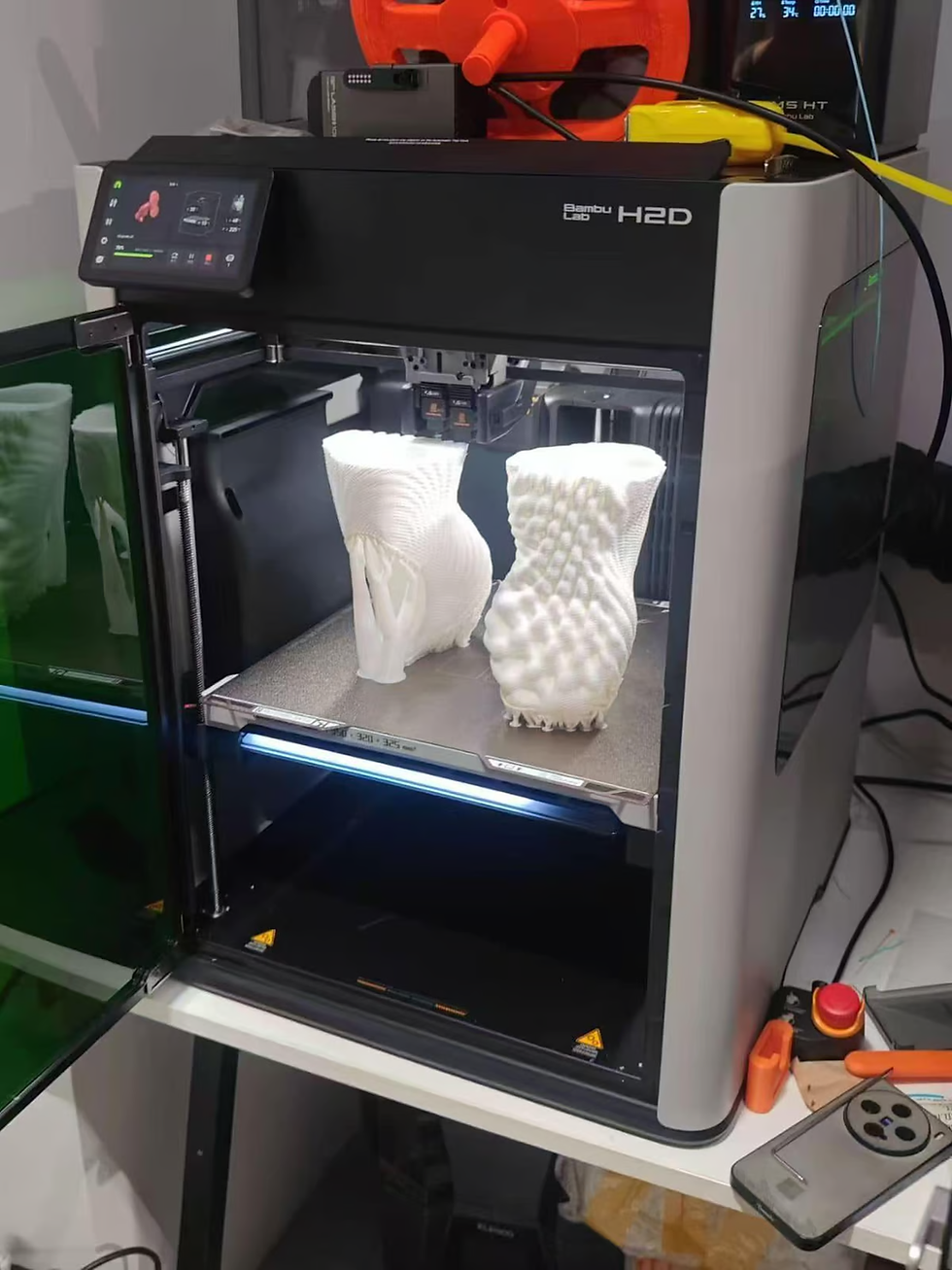Bambu Lab H2D: A Game-Changer in 3D Printing
- Nathan Griese
- Mar 20
- 3 min read

Introduction: The Next Step in High-Performance 3D Printing
Bambu Lab is set to disrupt the 3D printing market once again with the highly anticipated H2D 3D printer. With an official reveal date of March 25, 2025, this new system is expected to introduce cutting-edge features that enhance speed, precision, and material versatility. Leveraging an innovative dual-extrusion system, quick-swap hot ends, and advanced material handling, the H2D is positioned to challenge leading competitors such as the Creality K2 Plus and the Prusa Multi-Head XL.
Key Features and Technology of Bambu Lab's H2D
Dual-Extrusion System for Multi-Material Printing
One of the standout features of the H2D is its dual-extrusion system, designed within a single toolhead. This setup allows seamless transitions between materials, improving efficiency and reducing print waste. Unlike traditional multi-material printers that rely on multiple independent toolheads, the H2D’s integrated design minimizes weight and mechanical complexity.
A1 Quick-Swap Hot End Mechanism
Bambu Lab’s A1 quick-swap mechanism simplifies maintenance and filament changes. This feature enables users to replace hot ends within seconds without requiring tools, making the H2D a versatile solution for a variety of materials, from PLA and ABS to high-performance engineering polymers.
Advanced Filament Management System
A recently filed patent (CN116214927A) suggests that Bambu Lab has revised it's AMS system to work with the H2D's dual filament system. The image shows a "4 in, 2 out" design.

Comparing the H2D to Creality K2 Plus and Prusa Multi-Head XL
Creality K2 Plus vs. Bambu Lab H2D
Feature | Creality K2 Plus | Bambu Lab H2D |
Extrusion System | Single Toolhead | Dual-Extrusion |
Quick-Swap Hot End | No | Yes |
Filament Drying | External Required | Integrated |
Multi-Material Capabilities | Limited | High |
The Creality K2 Plus is a well-balanced, cost-effective 3D printer but lacks advanced features like quick-swap hot ends and dual extrusion. The H2D surpasses it in versatility and printing capability but may not surpass it in print temperatures or build volume.
Prusa Multi-Head XL vs. Bambu Lab H2D
Feature | Prusa Multi-Head XL | Bambu Lab H2D |
Toolhead System | Multi-Head | Dual-Extrusion |
Quick-Swap Hot End | No | Yes |
Multi-Material Capability | High | High |
Filament Drying | External Required | Integrated |
Prusa’s Multi-Head XL focuses on independent toolheads for multi-material printing but lacks the quick-swap convenience of the H2D. The H2D may offer similar multi-material capabilities while being more streamlined and user-friendly while potentially offering a smaller build volume. The enclosure, however, makes for a more versatile printer in terms of material choice. We will see how the pricing compares between the two as a fully loaded Prusa XL has a high price tag.

Potential Market Impact of the H2D
The introduction of the Bambu Lab H2D will likely reshape the 3D printing market in several ways:
Increased Competition: With its high-performance capabilities, the H2D may pressure competitors to adopt more advanced features in their product lines.
Better Accessibility for Professional Users: The combination of quick-swap hot ends and advanced material support makes high-quality multi-material printing more accessible to engineers and small manufacturers.
Faster Adoption of Multi-head Material Management: By incorporating advanced extrusion and management systems, the H2D pushes the boundaries of efficient multi-material printing.
What We Don't Know

There are still some question:
-What is the true build volume? Two different leaked images suggest a build volume of 492x514x626mm while another suggests 350x320x325
-Will there be an active heated chamber? While not confirmed, the successor to the X1C would be severely handicapped in todays market if a heated chamber was not included.
-Hot end/build plate max temperatures? Comparing to the K2 plus with an active chamber heater, 350oC hot end and 120oC bed temp, not matching these specs would limit some of the upper end consumer materials that this printer can print.
Conclusion
Bambu Lab’s H2D 3D printer is shaping up to be a formidable contender in the high-performance 3D printing space. By integrating a dual-extrusion system, an A1 quick-swap hot end mechanism, and advanced material management capabilities, it has the potential to outclass existing models like the Creality K2 Plus and Prusa Multi-Head XL. As the official release date approaches, excitement continues to build, and the industry eagerly awaits the full reveal of what could be one of the most advanced desktop 3D printers to date.

Comments